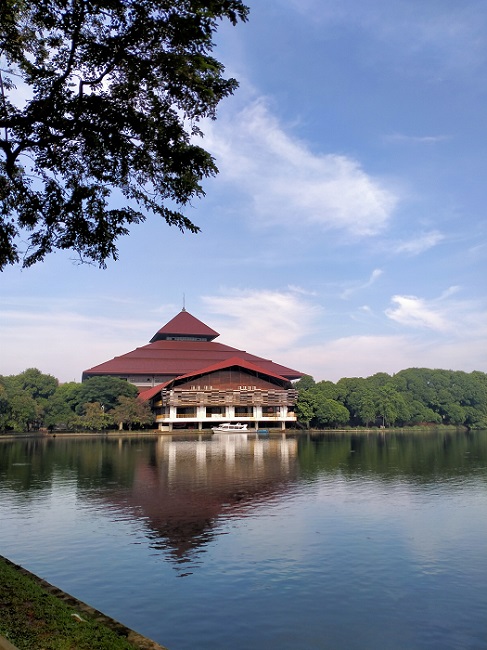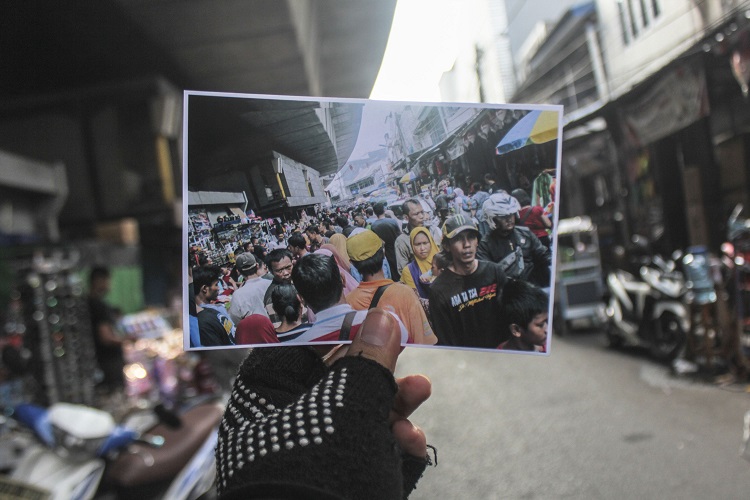Thousands of children have been orphaned and ostracised as the pandemic crisis continues to spiral
Anton Lucanus
In recent months, Rahmawati has been struggling to deal with the increasing number of children arriving at her door. The director of an orphanage in Surabaya, East Java she told the international media this month, ‘Some of them (children) were brought here by their relatives’, she explained. ‘I can’t say no to any of them, since they are suffering from financial problems.’
Across the world the pandemic has exacerbated existing social and economic problems, and as American philanthropist Melinda Gates remarked, ‘COVID-19 has magnified every existing inequality’. It is also true that some nations are more affected than others.
World Health Organisation (WHO) data shows that as of late August 2021, Indonesia had recorded over 4 million COVID-19 cases, and over 130,000 people have died (most likely a significant undercount). Indonesia became a global epicentre of the COVID-19 pandemic with over 55,000 confirmed cases per day in mid-July. Furthermore, over 27 per cent of people who take the COVID-19 test were regularly found to be positive, which means there is a significant number of undetected cases mixing around with the community, spreading the virus.

Despite government restrictions on mobility in regions across Java in July and August, the virus has continued to spread. The healthcare system in Jakarta and other cities in Java reached breaking point at the peak of the crisis in mid-July, and it continues to be under severe strain, especially in the outer regions. Hospitals are unable to handle the large number of patients and are running out of oxygen supplies. Medical workers at the frontlines are also bearing the brunt of the lethal virus. According to data collected by LaporCovid-19, as of 24 August, over 1,900 healthcare workers had died since the pandemic began, with 114 doctors dying in the first half of July alone. Indonesia’s pandemic death rate is about 2.6 per cent of those infected with the virus compared to 2.8 per cent in the U.S., and is expected to increase as the virus spreads through rural Indonesia, which has a weaker healthcare infrastructure.
Children orphaned
This rising death toll among adults is having a devastating impact on a generation of children, resulting in thousands becoming orphans. According to East Java’s child protection agency, in that province alone over 5000 children have lost one or both parents to the virus. With verified data hard to find, some estimates put the national toll at more 11,000 children, whilst others posit that the count of orphaned children could even be as high as 50,000. With daily case numbers remaining high and rising outside Java, it is likely that more and more children will lose at least one of their parents.
In a country, where 9.8 per cent of the population live below the national poverty line, the death of the main breadwinner in the family creates an impossible situation for the remaining parent. In poorer families this may mean that even if they have one parent, children can still be sent to orphanages due to the sheer inability of the family to provide for them.
This situation has led to more children arriving in orphanages today than at any other time in recent history. At the same time, the economic crisis means that these institutions are facing significantly reduced charitable donations, which has left orphanages like Rahmawati’s having to cope on their own as best as they can.
Social stigma and ostracism
On top of the pain and tragedy of losing their parents, children orphaned by the pandemic are also facing the barbs of social stigma. A recent survey conducted by staff in the Psychology Faculty at the University of Indonesia found widespread social stigma towards those who contracted COVID-19. Over 55 per cent are talked about by people around them, 33 per cent are ostracised, 25 per cent are accused of being spreaders of the virus and almost 10 per cent are bullied on social media. This social stigma blankets the entire family, including members who do not become sick. For example, 42 per cent of family members are talked about, 27 per cent are shunned, 15 per cent are accused of spreading the virus and 7 per cent are not allowed to use public facilities.

In the meantime, with an increasing number of children left destitute due to the deaths of their parents, the government is attempting to find solutions. The country’s Women’s Empowerment and Child Protection Minister Bintang Puspayoga has pledged that, ‘The government will ensure the protection of children who have lost their parents to COVID.’ She has assured the devastated families and communities that her ministry will coordinate with other agencies to ensure children are not neglected.
According to Indonesia’s Deputy Minister for Child Protection, Nahar, the national government is currently engaged in trying to better understand the scale of the problem and is planning strategies to deal with the changing severity of the tragedies. His team are focusing on scenarios for settling orphaned children with members of their extended family, rather than sending them to orphanages, while also offering financial assistance to the neediest.
Save the Children Indonesia is one non-government organisation working to support children. The organisation is urgently trying to find homes for the orphans, either with next of kin, registered guardians or foster families. They are concerned that vulnerable children could be illegally adopted when countries reopen borders, or be pressured into child marriages, or forced into child labor. There is also a concern they could be sent away to orphanages when one parent is still living.
Save the Children Indonesia’s Sudrajat said, ‘(Sending children to orphanages) should be the last resort, as in our alternative care framework, we must try to engage the closest families first.’ The emotional and psychological trauma of losing one or both parents will be aggravated when children are separated from family members. Deputy Minister Nahar has faith in the Indonesian family, ‘In Indonesia, family ties are quite strong. We believe children can be nurtured by their large extended families.’
Anton Lucanus (anton@neliti.com) is the Founder of Neliti and a former researcher at the Eijkman Institute for Molecular Biology in Jakarta, which plays a critical role in Indonesia’s COVID-19 diagnostic infrastructure. His research focuses on virology and viral epidemiology in Indonesia.












